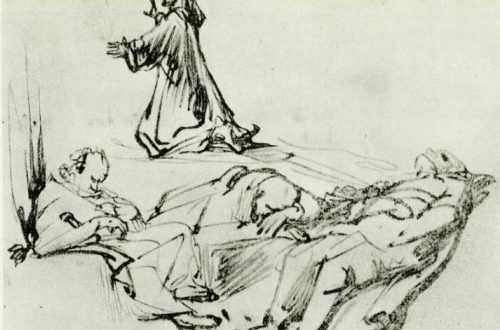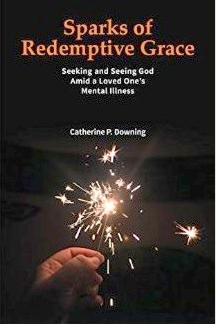Adoption Awareness Month: The Broken Road That Led to Her
“You can always adopt.” How those words stung—again. They were always offered by the well-meaning cheer-uppers. And they minimized our grief.
After years of infertility and pregnancy loss, we were well aware of the adoption option. But “always” was incorrect. What about those who experience failed adoptions (as we eventually did three times). There are no guarantees. And not everyone who has spent their life savings on medical treatment has another $20,000+ (per child) to sink into legal fees. But more fundamentally, we still had some grieving to do before we embraced adoption as a great option.
We felt validated when adoption expert Patricia Johnston spelled out infertility’s six losses In her book Adopting after Infertility. These losses include the following: (1) loss of control, (2) loss of individual genetic continuity, (3) loss of a jointly conceived child, (4) loss of the pregnancy and birth experiences, (5) loss of emotional expectations surrounding pregnancy and birth, and (6) loss of an opportunity to nurture and parent a new generation. Notice that of these six, adoption is the “cure” for only one grief accompanying infertility—the loss of a chance to nurture and parent a new generation.
Before we could fully embrace adoption, we had some questions to explore honestly.
Were we prepared to answer infertility-related questions during our parenting years, as would be the case in transracial adoption? When we expressed reservations, people accused us of being racist. One person, seeing our black and white cat, even said, “I’m glad to see you don’t hold the same standard for your animals.” Seriously?
And we had to ask ourselves if we were ready to embrace a child who looked nothing like us. That is not to say we look fantastic. That’s hardly the point. Sometimes when I look in the mirror, I can see the faint image of my mother. At other times when I smile and catch my reflection, I see my father. So at least for some of us, there’s something magical about being biologically connected to great parents and a meaningful heritage. And because my husband and I were (and are) in love, we wanted to create something fantastic together—something that only the two of us in partnership with God could do. Yet when we expressed reservations about adoption for these reasons, people accused us of being stuck on genetics.
We hesitated to list on the adoption application that we would consider a child with serious health issues. Such a decision could mean the focus of our lives might have to shift from teaching to caretaking. Was this our calling? Was that the best use of our resources? Our hesitation made people suggest we had messed up priorities.
We considered signing up to care for foster children. But we watched as experienced parents in the foster-care system were stretched to the limit of parent-coping skills. As inexperienced parents ourselves, we wondered how we would deal with such stresses, especially after how infertility had tried us. When we hesitated, people labeled us “selfish.”
Such disapproval did nothing to help us make wise decisions. We were trying to carefully count the cost, something every couple who adopts should do. What were the pros and cons? And how important were they to us, regardless of what other people said?
Eventually we did adopt a beautiful eight-month-old child who gets a much better tan in the summer than the best money and harmful UV rays could buy for me.
We have less interest in genealogy than we had before we knew we’d never have a biological child. And I tend to slip out when women tell their labor-room war anecdotes. Still, my husband and I love being adoptive parents and we are fully embracing our opportunity to nurture and parent the next generation.
Our daughter has losses of her own, and they’re similar to ours. She wonders about her heritage. And she looks nothing like us (she’s more beautiful).
Adoption for each member of our family has been far better than the alternative. But the “resolution” stage has followed a period of profound grief.
If you know someone who longs for children, an open-ended question such as, “How do you envision your future?” might be a more helpful response than “You can always adopt,” or “What about a transracial adoption?” or “Have you considered all the kids with special needs?” For many, it’s not as warm and fuzzy as it looks on the rocky path to a happy ending. It takes time to process all the options, but your uncritical words, unwavering support, and unconditional love can make the road smoother on their route to resolution.



5 Comments
Kelley Mathews
A good word
Thanks for the honesty. There is so much more to an adoption story than "I wanted a child and, look! Here he/she is!" As a biological mother who has never had to deal with these heartbreaking issues, this sort of info and insight is soooo valuable! Because I have a lot of friends, and I will meet many through my work and ministry, who are dealing with infertility, adoption, childlessness. So thanks for sharing some of your experience and what you've learned through it.
Sandra Glahn
Your friends are blessed
Thanks, Kelley. Your friends are blessed that you desire to help and learn and be sensitive. Just as you need to know what to say to those dealing with infertility, I need to continue learning how to be a good friend to the mom with four kids whose baby just spit up on her silk blouse while her toddler dumped a full box of Cheerios on the floor.
Kelley Mathews
wait a minute…
…you were fabulous with me that day! 😉
Candice
Thank you for sharing this story
Sandra,
I have meet you a few times in person, but never heard your story to parent hood. Thanks so much for sharing this truthful and realistic insight. My husband and I have faced many of the same challenges that you wrote about. It is both inspiring and encouraging to hear others who have gone through the same struggles. We are currently still "childless" but pray constantly for God's will to be done in this area of our lives.
Much peace and blessings to you!
Candice
Sandra Glahn
You Are Not Alone
Thanks for your encouraging words, Candice. I'm so sorry for what you've been through and continue to go through. It can be rough, huh? I appreciate your faith in the midst of the storm.